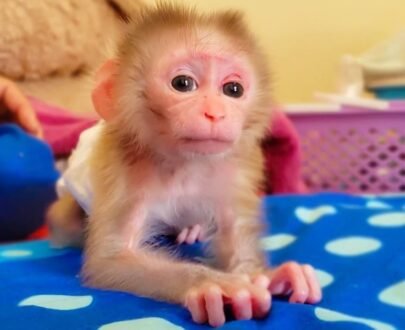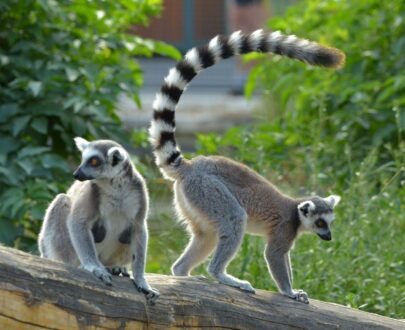Capuchin Monkey For Sale
All our monkeys are Home raised, very sociable and like to play with people, kids and other home pets. Our monkeys are very healthy and vaccinated. Beautiful baby Capuchin monkeys that will make the best indoor and family pets, ready for good and caring homes.
They are male and female available for sale and they are potty trained, they are good with other house pets such as, dog, kitten, birds, etc. they come along side with all paperwork, they are up to date with vaccine, vet check, health guaranteed. Capuchin Monkey For Sale
Capuchin monkey, (genus Cebus), also called sapajou, common Central and South American primate found in tropical forests from Nicaragua to Paraguay. Capuchins, considered among the most intelligent of the New World monkeys, are named for their “caps” of hair, which, Buy Capuchin Monkey they are available 247. Exotic Monkeys For Saleresemble the cowls of Capuchin monks. These monkeys are round-headed and stockily built, with fully haired prehensile tails and opposable thumbs. The body is 30–55 cm (12–22 inches) long, with a tail of about the same length. Coloration ranges from pale to dark brown or black, with white facial markings in some of the four species. We have
Capuchin monkeys for sale, We have babies as well as adult Capuchin Monkey.
Our monkeys make great home pets .
They are also good for breeding purposes.
This monkeys have been bottle-fed from birth, all
shots are up to date, and they will make a wonderful companion to any home.
This monkeys grew up in our home. All paper work and a certified pedigree is provided .
We have all documents and certificates required for international import and export of wildlife. If you are looking for monkeys for sale, contact us today so we can discuss the primates that are currently in our care
The capuchin monkeys are New World monkeys of the subfamily Cebinae. They are readily identified as the “organ grinder” monkey, and have been used in many movies and television shows.
Lifespan: 15 – 25 years (In the wild)
Scientific name: Cebinae
Mass: White-headed capuchin: 2.9 – 3.9 kg
Gestation period: White-headed capuchin: 152 – 183 days, White-fronted capuchin: 158 days
Length: White-headed capuchin: 34 – 45 cm, White-fronted capuchin: 84 cm, Wedge-capped capuchin: 86 cm
All our monkeys are Home raised, very sociable and like to play with people, kids and other home pets. Our monkeys are very healthy and vaccinated. Beautiful baby Capuchin monkeys that will make the best indoor and family pets, ready for good and caring homes.
They are male and female available for sale and they are potty trained, they are good with other house pets such as, dog, kitten, birds, etc. they come along side with all paperwork, they are up to date with vaccine, vet check, health guaranteed, black capuchin monkey for sale, capuchin monkey for sale craigslist
Capuchin monkey, (genus Cebus), also called sapajou, common Central and South American primate found in tropical forests from Nicaragua to Paraguay. Capuchins, considered among the most intelligent of the New World monkeys, are named for their “caps” of hair, which, Buy Capuchin Monkey they are available 247.
capuchin monkey for sale near Spartanburg, SC, capuchin monkey for sale near orlando, fl, capuchin monkey for sale near missouri, capuchin monkey for sale texas, capuchin monkey for sale tennessee, comprar mono capuchino, female capuchin monkeys for adoptionsale, male and female capuchin monkeys.
Capuchin monkeys, known for their intelligence and dexterity, are small New World monkeys found primarily in Central and South America. They belong to the genus Cebus and Sapajus within the family Cebidae. Here’s an in-depth look at capuchin monkeys:
Physical Characteristics
- Size and Weight
- Body Size: Capuchins typically have a body length of about 12-22 inches (30-56 cm), not including the tail.
- Tail: Their tail is usually as long as or longer than their body, measuring 14-22 inches (35-56 cm). It is prehensile, allowing them to grasp objects and navigate through trees.
- Weight: They generally weigh between 3-9 pounds (1.4-4 kg).
- Appearance
- Fur: Capuchins have dense fur that can vary in color, including shades of black, brown, white, and cream. The fur around their face often contrasts with the rest of their body, giving them a distinctive look.
- Face: They have expressive faces with dark eyes and a pronounced brow ridge.
Behavior and Social Structure
- Social Groups
- Capuchins live in social groups called troops, which can range from a few individuals to over 30 members. These groups are typically led by a dominant male.
- They have complex social structures and behaviors, including grooming, playing, and vocal communication to maintain social bonds and hierarchy.
- Communication
- They use a variety of vocalizations, facial expressions, and body language to communicate. Vocalizations include alarm calls, food calls, and social signals.
- Capuchins are also known for their use of tools, such as using rocks to crack open nuts or sticks to extract insects from crevices.
- Reproduction
- Capuchins have a gestation period of about 5-6 months, usually giving birth to a single offspring. Twins are rare.
- Infants are cared for by their mothers and other group members, and they rely heavily on social learning to acquire skills.
Habitat and Diet
- Habitat
- Capuchins are primarily arboreal, living in tropical and subtropical rainforests. They can also adapt to various other habitats, including dry forests and mangroves.
- They spend most of their time in the trees but may come to the ground to forage.
- Diet
- Capuchins are omnivorous and have a diverse diet that includes fruits, nuts, seeds, insects, small vertebrates, and bird eggs.
- They are skilled foragers and are known to use tools to access hard-to-reach food.
Conservation Status
- Threats
- Habitat destruction due to deforestation, agriculture, and urban development is a major threat to capuchin populations.
- Hunting and capture for the illegal pet trade also pose significant risks.
- Conservation Efforts
- Various conservation programs and protected areas have been established to preserve capuchin habitats and promote their conservation.
- Organizations work on habitat restoration, anti-poaching measures, and public education to ensure the survival of capuchin monkeys.
Capuchins as Pets
- Legal and Ethical Issues
- Keeping capuchins as pets is regulated or prohibited in many regions due to their complex social and environmental needs.
- They require extensive care, and keeping them in captivity can lead to behavioral issues and poor welfare.
- Care Requirements
- Capuchins need a large, enriched environment with plenty of opportunities for physical and mental stimulation.
- They require a specific diet and social interaction with other monkeys to thrive. They can become aggressive and difficult to manage as they reach adulthood.
Conclusion
Capuchin monkeys are fascinating primates known for their intelligence, dexterity, and complex social behavior. While they play important roles in their ecosystems, many species face significant threats from human activities. Conservation efforts are essential to protect their habitats and ensure their survival. For those considering keeping capuchins as pets, it is crucial to understand the legal, ethical, and practical challenges involved in providing proper care for these intelligent and social animals. Baby Capuchin Monkey For Sale







Customer reviews
Reviews
There are no reviews yet.
Write a customer review